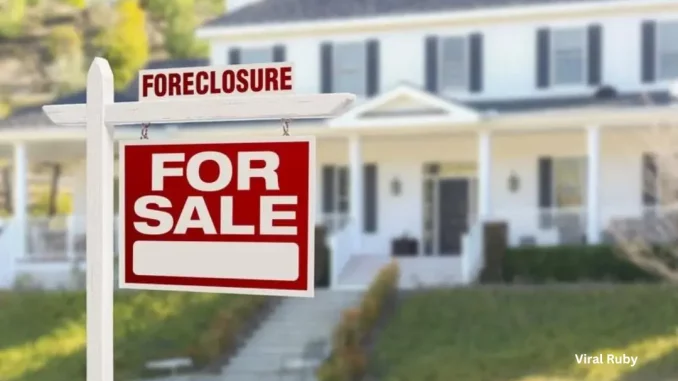
When Is It Too Late to Stop Foreclosure Once Started and After Sale Date?
When a homeowner falls behind on their mortgage payments, the lender can begin foreclosure. This is a legal process where the home is sold at auction to recoup the lender’s losses.
Fortunately, there are ways to stop foreclosure before it starts, but how long you have depends on your state’s laws.
When Is It Too Late to Stop Foreclosure?
Generally speaking, it is not too late to stop foreclosure when the property to be foreclosed on has not yet been sold at auction. However, what can be done in that allowed time can vary, depending on which stage of the foreclosure process your home is currently in.
Positive or Negatives: www foxnews com – Fox News Online Business & Politics News
Foreclosure is a legal process in which a lender takes over a mortgaged property when the borrower fails to make mortgage payments. The lender then sells the property to recoup its losses.
If you are behind on your mortgage, there are many things you can do to avoid foreclosure and save your home. These include talking to your lender about a loan modification or other workout option.
You can also apply for help from your state’s Homeowner Assistance Fund program, a federal program that provides $10 billion to states to help households get back on their feet and avoid foreclosure.
If you are facing the threat of losing your home, filing for bankruptcy can often help. Bankruptcy halts the foreclosure process and gives you an opportunity to rearrange your debts into something more manageable.
How to Stop a Foreclosure Auction Immediately?
If you find yourself on the edge of losing your home, there are several options to try and stop a foreclosure auction immediately. The key is to understand your situation, talk with your lender and work with a lawyer who can help you navigate the process.
A foreclosure sale can happen when a borrower becomes delinquent on their mortgage payments. Once the loan is in default, the bank will request repossession and then sell the property at a public auction.
In many states, including New York, homeowners can cure their mortgage defaults before their homes are sold at a foreclosure auction. This includes catching up all delinquent payments and paying any reasonable lender foreclosure costs.
But how do you know if this option will work for you? The best way to see if bankruptcy is right for you is to get a free consultation from a foreclosure attorney.
Filing for bankruptcy is a great way to stop your foreclosure in its tracks. This will stop your creditors from trying to collect on your debt, and it may even allow you to catch up on some arrears through a potentially affordable monthly payment plan.
What Is the Best Way to Prevent Foreclosure?
If you’re facing foreclosure or think you may soon, the best way to prevent it is to get in touch with your lender as soon as possible. They will have options available to you, such as forbearance and loan modifications.
Lenders don’t want to lose a paying customer, so they would rather work out a plan with you and give you time to repay the debt over time. This is especially true if you have an unexpected financial hardship that causes your ability to make mortgage payments to change significantly.
Another way to avoid foreclosure is to contact a free HUD-approved housing counselor for assistance. They can provide you with information on programs that can help you avoid foreclosure and also offer expert advice and guidance.
There are also hard money lenders who might be willing to take a loss on your home in exchange for some of your delinquent debt, but these loans come with high rates and fees. They’re a last resort, but they might buy you some time to sell your home.
How Do You Defend Against Foreclosure?
If you are struggling with a mortgage or deed of trust loan, you can defend against foreclosure by seeking the services of an attorney. They can help you find and raise a number of defenses, and they may even be able to help you get your mortgage back through a loan modification or other alternative.
Foreclosures occur when a lender seizes property assets (such as your home) to make back a loan that was not paid on time. These actions are normally based on the borrower’s inability to pay their loan payments or other debts related to the mortgage, like property taxes and homeowners association fees.
One of the most effective foreclosure defenses involves attacking a bank’s shoddy or illegal practices. For example, if a borrower can show that notes were misplaced or endorsed, documents were forged or robo-signed, or any other issue involving the lender’s legal actions, courts will typically rule in favor of the homeowner.
A foreclosure defense lawyer can also investigate your case to look for statutory violations that may be enough to allow you to challenge the lender’s foreclosure action. This can be a helpful strategy because it can give you time to find an alternative solution to your situation.
What Is the Most Common Reason for a Foreclosure?
Typically, foreclosure happens when a borrower is at least 120 days behind on their mortgage payments. However, there are a number of other factors that can cause you to lose your home.
Excessive debt, a negative equity mortgage loan, adjustable rate or exotic mortgages, and a lack of emergency resources are all examples of reasons why someone might struggle to make their mortgage payments. Some of these issues can be resolved before a foreclosure takes place.
Foreclosures can also occur when a property owner fails to pay property taxes or homeowners insurance. If these are not paid, a lender can seize the property and sell it for its market value to recover the money they owe on the loan.
In most states, a lender can start the process of foreclosure by filing a legal notice with a trustee or lawsuit to foreclose. This is called a “judicial” foreclosure, and it follows strict laws that protect borrowers and guide how they are handled.
The process of a foreclosure can take months or even years, and it can damage your credit score. The process also damages your ability to get other financing in the future.
Can Foreclosure Be Stopped Once Started
If you’re facing foreclosure, there are a few options you can use to stop the process before it gets out of hand. The key is to talk with your lender as soon as you realize that your financial situation may be getting out of control.
Depending on your state, you can usually apply for loss mitigation as early as 120 days after missing payments. This can allow you to save money and explore other options, like a loan modification.
Another option is to file for bankruptcy. This will halt foreclosure proceedings for a while, but it can also hurt your credit.
Reinstating your loan is another way to stop a foreclosure, as well as a deed in lieu of foreclosure. These both involve bringing one payment that makes your delinquent loan current.
Other ways to avoid foreclosure include taking advantage of government programs or losing your home through a short sale. If you have difficulty paying your mortgage due to the COVID-19 pandemic or another issue, apply for assistance from the federal Homeowner Assistance Fund or state-based housing assistance programs.
Can You Stop Foreclosure After Sale Date
As many homeowners know, it can be very difficult to save a home that is about to be foreclosed on. This is why it is so important to be prepared and have a plan to save your home.
One of the first things you need to do is hire an experienced foreclosure attorney. They will be able to help you postpone or stop the foreclosure process so that you can keep your home.
Another option you may consider is to file for bankruptcy. This will give you time to talk with your bank about options and possibly even modify your mortgage loan.
If you file for bankruptcy, the lender will not be able to pursue foreclosure on your property because of a federal law called dual tracking. This prevents the lender from trying to foreclose on your home while you are negotiating for a loan modification or other mortgage workout option.
Foreclosure is a very complex legal process that can be very time-consuming and stressful. It is important to work with an experienced foreclosure attorney so that you can be confident in the outcome of your case.
Stop Foreclosure Government Help
There are several free government programs that can help you if you’re struggling to keep up with your mortgage payments. These include loan modification, foreclosure mitigation, and the Making Home Affordable program.
Do You Know! How Different Businesses Uplift Them Through Packaging?
The best way to avoid getting caught up in a foreclosure mess is to take proactive steps to improve your situation as soon as possible. The first step is to contact your lender and ask them to review your case.
You might also want to consider a loss mitigation strategy. This involves discussing with your lender the possibility of getting a loan modification to allow you to keep your home.
While this may seem like a no-brainer, you may be surprised by how few people actually pursue it. There are a number of HUD-approved agencies that can provide free foreclosure mitigation assistance, as well as a few state and local organizations that offer similar services to their neighbors. Check out the HUD website for more details. The best thing about all of these programs is that they are available to everyone, no matter your income level.

Leave a Reply